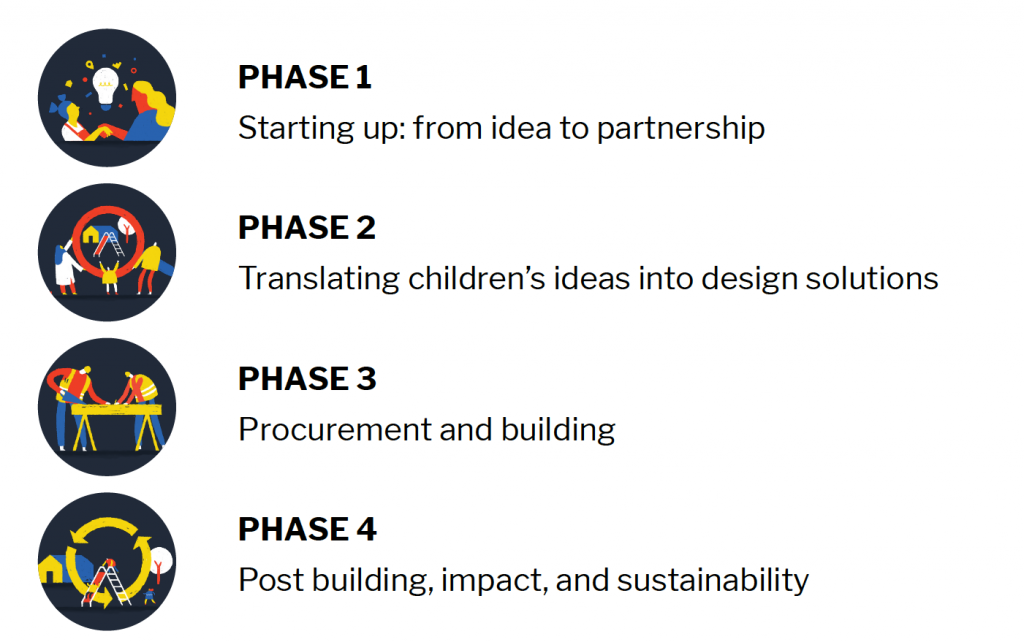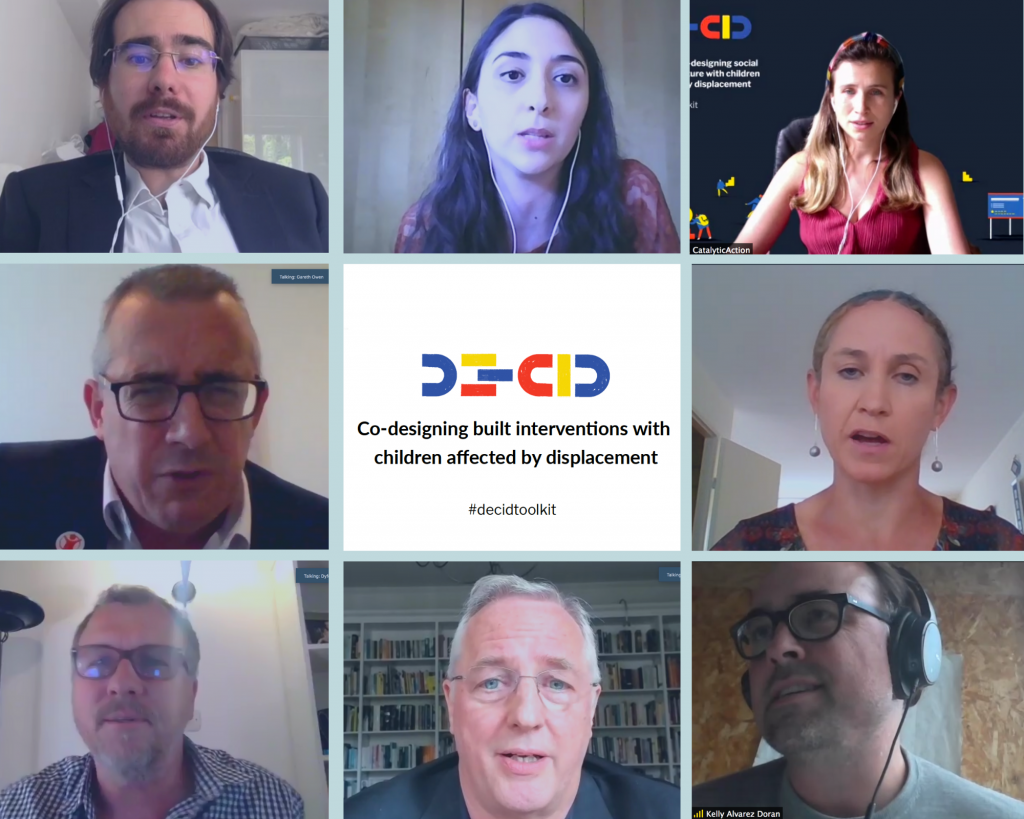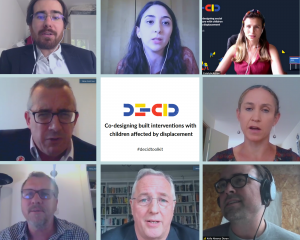Thursday, July 16, 2020, marked the launch of the DeCID toolkit for co-designing built interventions with children affected by displacement. In line with the toolkit’s interdisciplinary approach, we welcomed professionals from the fields of child wellbeing and displacement, humanitarian aid and the built environment to a one-hour webinar to address the benefits, challenges and techniques of children’s participation in the co-design of built interventions.
Watch the full webinar here:
Dr. Sandra El Gemayel, Research Consultant at DeCID provided a holistic overview of the context and diversity of children affected by displacement. Sandra emphasised the importance of restoring routine, high quality education and, in particular, play opportunities for children to help them recover from traumatic experiences of displacement and improve their overall wellbeing.
Joana Dabaj, Founder of CatalyticAction and Co-Investigator at DeCID, discussed the importance of including children in the co-design of built projects with examples from CatalyticAction’s work with displaced communities in Lebanon. Joana introduced the DeCID toolkit’s four phases:

Gareth Owen, Humanitarian Director at Save the Children, highlighted the protracted nature that some displaced people and children experience, and the importance of taking a humanistic approach to conditions of displacement, giving children agency and voice, and restoring a semblance of normality to create meaningful impact.
Cecilia Vaca Jones, Executive Director of the Bernard van Leer Foundation which focuses their work on babies and toddler and the wellbeing of parents and caregivers, discussed the importance of enabling positive interactions between children and their caregivers and surrounding spaces through built interventions, especially during the first 1,000 days in a child’s life. Cecilia presented positive examples of participatory design from Boa Vista in Brazil and Bogotá, Colombia, among others.
Dyfed Aubrey, Inter-Regional Advisor at UN-Habitat, spoke about the benefits of engaging children in the co-design of public spaces, which can strengthen their ownership, ensure longer term maintenance of the intervention, and strengthen the social contract between children and government. Dyfed argued that this can ultimately contribute to social cohesion and peacebuilding, and emphasised the importance of engaging displaced communities in the design of public spaces to create a sense of belonging, rather than just being ‘guests’ in a space.
Peter Oborn, Chartered Architect and Strategic Client Adviser, discussed how the nature and scale of humanitarian crises are becoming increasingly urban, and therefore emphasised the importance of built environment professionals collaborating with other disciplines of humanitarian response and participatory design, mainstreaming this type of work among built environment professionals.
Kelly Alvarez Doran from MASS Design Group brought examples from Rwanda and the Democratic Republic of Congo on how participatory design can improve the quality of education, protect endangered wildlife, and support livelihoods through involving the community in the construction, and the use of local materials.
We thank our speakers for their time and invaluable contribution to this event!
Find a full biography of the speakers here.
The DeCID toolkit is now in a process of review. To contribute, please email Principal Investigator Dr. Andrea Rigon andrea.rigon@ucl.ac.uk
To receive the final version of the DeCID toolkit, sign up to our newsletter: https://decid.co.uk/contact/



